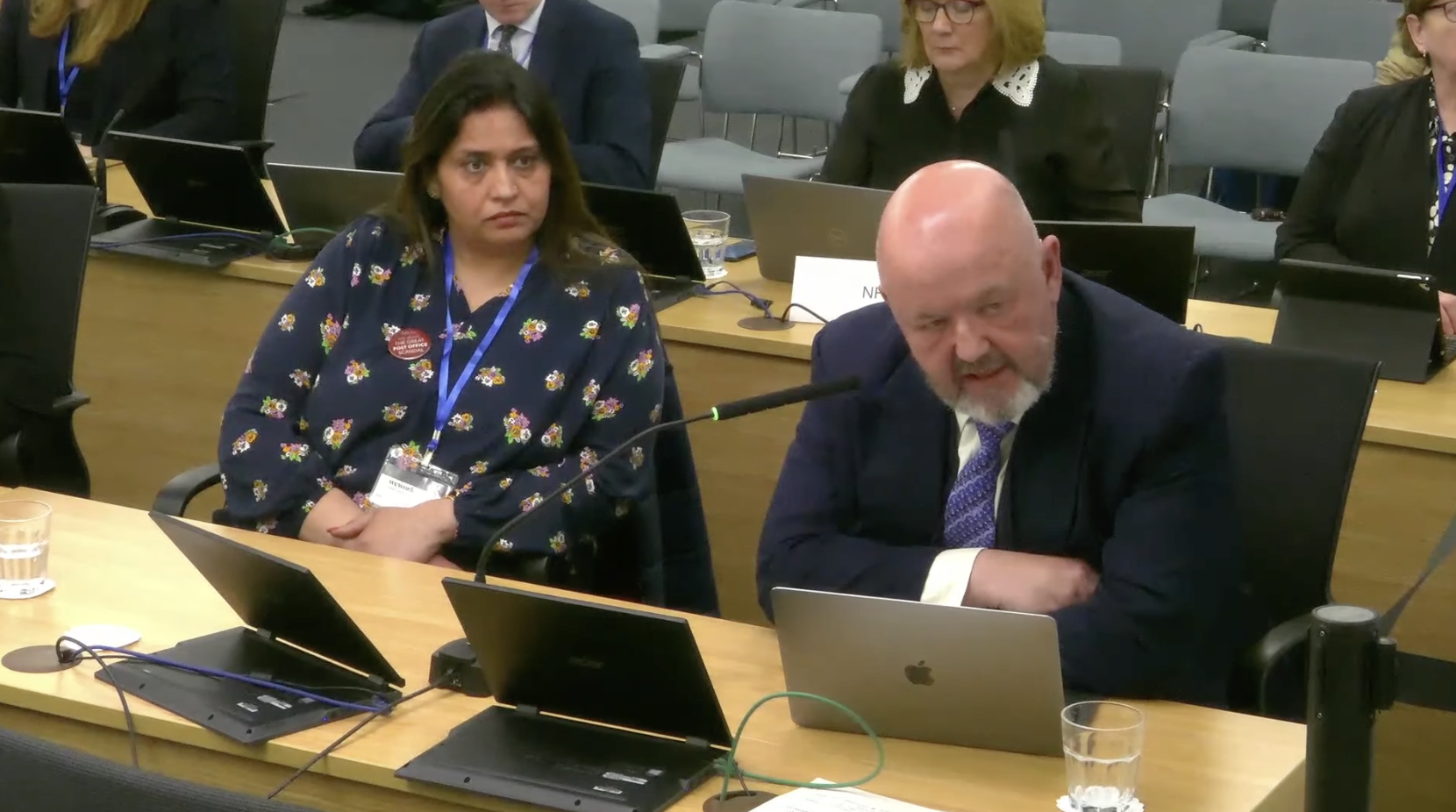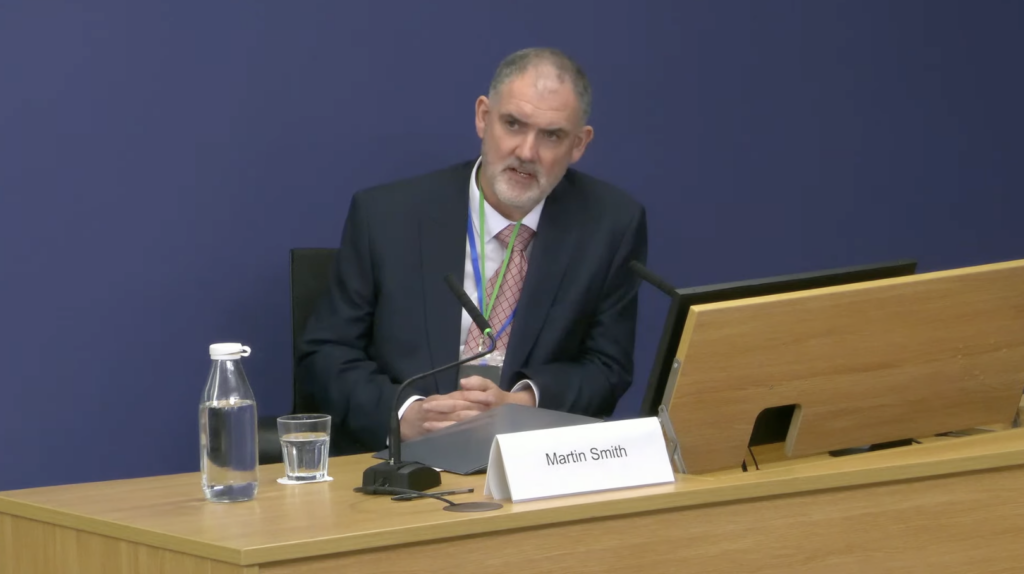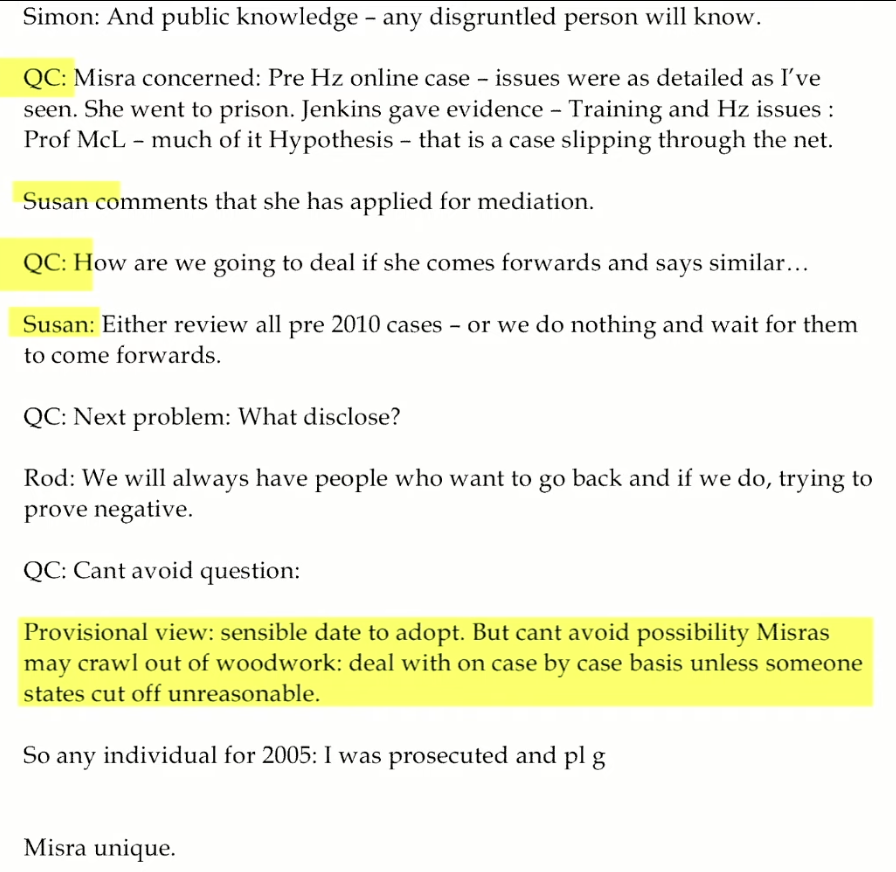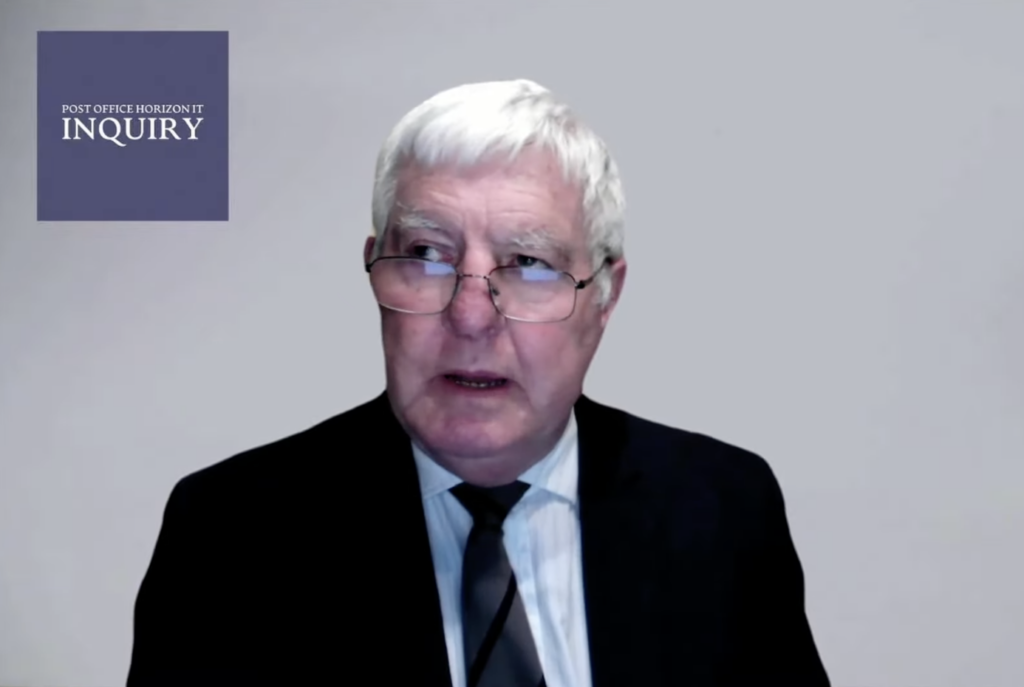
Today we got some insight into the catastrophic and frankly sinister failings of a group of lawyers at the heart of the Post Office scandal. The lengths Brian Altman (then) QC et al went to to avoid their post-conviction disclosure duties to former Subpostmaster Seema Misra (who was sent to prison whilst eight weeks pregnant) are mind-boggling.
Fujitsu engineer Gareth Jenkins had given expert evidence at Seema Misra’s 2010 trial without disclosing his knowledge of bugs, errors and defects within the Post Office’s Horizon system. In June 2013, Simon Clarke, an in-house barrister at Cartwright King (who prosecuted Subpostmasters on behalf of the Post Office) became aware of the draft Second Sight Interim Report.
Second Sight were independent investigators being paid by the Post Office (at the behest of MPs and the Justice for Subpostmasters’ Alliance) to look into Subpostmaster complaints. The Second Sight Interim Report contained notice of at least two serious bugs in Horizon.
On seeing the draft report, Clarke and his colleague Martin Smith called Gareth Jenkins. Without telling Jenkins, they recorded the conversation.
During the call, Jenkins candidly admitted he was the information source for Second Sight’s bug notice. That led to the first Clarke Advice in which Simon Clarke told the Post Office that Jenkins was a tainted witness who could not be used in future court cases. Clarke also recommended that all Post Office prosecutions should be reviewed.
So far so good. Simon Clarke had (correctly) thrown an enormous spanner in the works of the Post Office’s bent prosecution machine. What has mystified legal folk since is why Seema Misra was not told her conviction may be unsafe.
We know that Gareth Jenkins was not properly instructed as an expert witness, but no one to date disagrees with Clarke’s analysis. Jenkins knew about the extent of bugs in Horizon, but did not reveal them to Seema’s defence team or the court. As Martin Smith today agreed, Jenkins had potentially perjured himself, perverted the course of justice or both. This should have been disclosed to Mrs Misra, but was not.

Crawling out of the Woodwork
The review of Post Office prosecutions became a Cartwright King review of prosecutions post-2010 on fairly arbitrary grounds. Furthermore, the question for the review was not whether to tell Postmaster defence teams that Gareth Jenkins was a tainted witness. It was whether or not to give them two documents (the Second Sight Interim Report and the Helen Rose Report) which revealed bugs in Horizon.
Brian Altman QC was brought in to review the Cartwright King review. On 9 September 2013, eight lawyers gathered at the feet of Altman. They were Susan Crichton, Rodric Williams, Jarnail Singh (all Post Office), Simon Clarke, Harry Bowyer, Martin Smith (Cartwright King), Andy Parsons and Gavin Matthews (both Bond Dickinson).
The issue of Gareth Jenkins is front and centre to the discussion. Altman brings up Seema Misra and voices his concern that Jenkins (uniquely) gave oral evidence at her trial. The case was brought before 2010, and therefore before the arbitrary cut off date the Post Office had chosen to review its prosecutions. According to Smith’s typed notes of the meeting, Altman wondered how they were going to “deal” with Seema Misra if “she comes forward”.
“So she’s got to come forward”, noted Henry. “The impetus is on her. No one is going to tell her.”
Smith did not demur.
“It seems, by this stage, no one wanted to provide Mrs Misra with a ‘ticket’ to use your expression, to the Court of Appeal. Adopt a passive approach. Correct?”.
“I would certainly agree”, replied Smith “the Post Office did not want, at that stage, to be actively encouraging people to go to the Court of Appeal.”
Mrs Misra was sitting next to her barrister Ed Henry KC as he took Martin Smith through these notes.
The minutes also record Altman approving (as “sensible”) the 2010 cut off date for what became known as the CK Sift Review and reviewing pre-2010 applicants on a case-by-case basis. He then notes the Post Office “can’t avoid the possibility [the? more?] Misras might crawl out of the woodwork”. Like insects, Brian, right?

Henry wanted to know why Seema Misra wasn’t a slam dunk for disclosure, given that an expert witness, who may have committed perjury during her trial, was now accepted by all present as tainted.
“I don’t know”, replied Smith.
The meeting minutes show the gang of lawyers keep coming back to the Misra issue. When Gavin Matthews suggests apologising, Altman says “I wouldn’t.” He is also adamant she needs to be kept out of the mediation scheme, or the Post Office is “storing up trouble”.

During his questioning, Henry brought Smith’s mind to focus. “You realise of course that I am sitting next to Mrs Seema Misra today?” he asked.
“I… I… I didn’t realise that”, replied Smith, with some surprise in his voice.
The inquiry Chair, Sir Wyn Williams, had a question for Smith about his notes: “What does ‘Misra unique’ mean, so far as you are concerned?”
“I am afraid I’ve got no idea, sir.” Smith replied.
“Let me jog your memory”, Henry interjected. “It’s because it’s the only case in which Mr Jenkins gave oral evidence against a defendant.”
“That may be the case”, Smith accepted.
Clearly passes the disclosure threshold
Henry took Smith to a Cartwright King note likely written by Smith’s colleague Harry Bowyer which stated that by December 2013 it was his opinion that the Misra case “clearly passes the disclosure threshold” and that Cartwright King “will be disclosing the Second Sight Interim Report and the Helen Rose report to Misra’s lawyers”.
By January 2014, this advice has somehow, magically changed. Simon Clarke is now reviewing the Misra case, and he concludes she is due no disclosure, advice Henry told the Inquiry Clarke forwarded to his colleague Martin Smith with a covering email simply stating “Phew!!!”
Henry asked Smith if he believed Seema was “owed the truth”. Smith agreed “absolutely”. So, Henry asked, what happened between December 2013 and January 2014 to change Cartwright King’s advice?
Smith suggested more documents about Seema Misra’s case had become available to Cartwright King, but how they had a bearing on the final – reputationally essential – decision not to disclose, was not something he could opine on.
Simon Clarke will be giving evidence to the Inquiry next week, as will Brian Altman (now) KC. I wonder if they will be asked if they ever considered that in not disclosing crucial evidence to Seema Misra they might have been perverting the course of justice.
An Enemy of the Business
Another previously unseen document surfaced today. It is a draft briefing by Second Sight which was commissioned by Post Office General Counsel Susan Crichton and given to her successor Chris Aujard in January 2014. It is a review of the investigation function of the Post Office. The language in the document is stark. Second Sight state:
“POL [Post Office] Investigators often appear to have paid scant attention to the interviewee’s assertions of innocence or his/her reference to specific transaction anomalies. They seem to have shown little or no willingness to establish the underlying root cause of any given shortfall.”
Second Sight accept that in coming to their conclusions they “have not interviewed any of the members of the Investigation Team, nor its senior management. We have not reviewed its mandate, manpower or workload.”
Nonetheless they are confident enough in what they had seen to conclude:
“The overwhelming impression gained from reviewing the transcripts of investigative interviews is that the SPMR [Subpostmaster] was viewed as an enemy of the business. The culture within the Investigation Team appears to be one of a presumption of guilt when conducting an investigation, rather than the aim of seeking the truth.”
A presumption of guilt is an obvious precursor to a miscarriage of justice, and the authors of the report (Ron Warmington and likely Ian Henderson) note that the mishandling of investigations has led to where the Post Office had got itself in 2013 – dealing with some very angry people claiming they had been falsely prosecuted. Second Sight explains why bad investigations are bad for business:
“Because identifying loss drivers and correcting systemic weaknesses is such an essential part of Effective Loss Management, it is absolutely vital that the organisation does that job really well… It is hard to overstate the importance of this function in maintaining the health of the organisation.”
Second Sight make a series of recommendations and add contextual references over eight very readable pages.
The report was described today by Chris Aujard as “heavily caveated”. The barrister Flora Page wondered if it did not demand “immediate attention.” Despite the clear warnings about the state of the Post Office’s investigation function and the potential for miscarriages of justice, Aujard disagreed. He told the Inquiry he read the report and then “put it to one side.”
I have scanned and uploaded a fully searchable version below.
I am currently touring Post Office Scandal – the Inside Story. Please do come and see us as we make our way around the country (all dates here). We desperately need to sell more tickets in Hayes (Sunday 5 May) and Swindon (Mon 13 May) for some reason. All the rest are doing quite well. If you can make it to Hayes or Swindon, I’d love to see you!
The journalism on this blog is crowdfunded. If you would like to join the “secret email” newsletter, please consider making a one-off donation. The money is used to keep the contents of this website free. You will receive irregular, but informative email updates about the Post Office Horizon IT scandal.

Leave a Reply